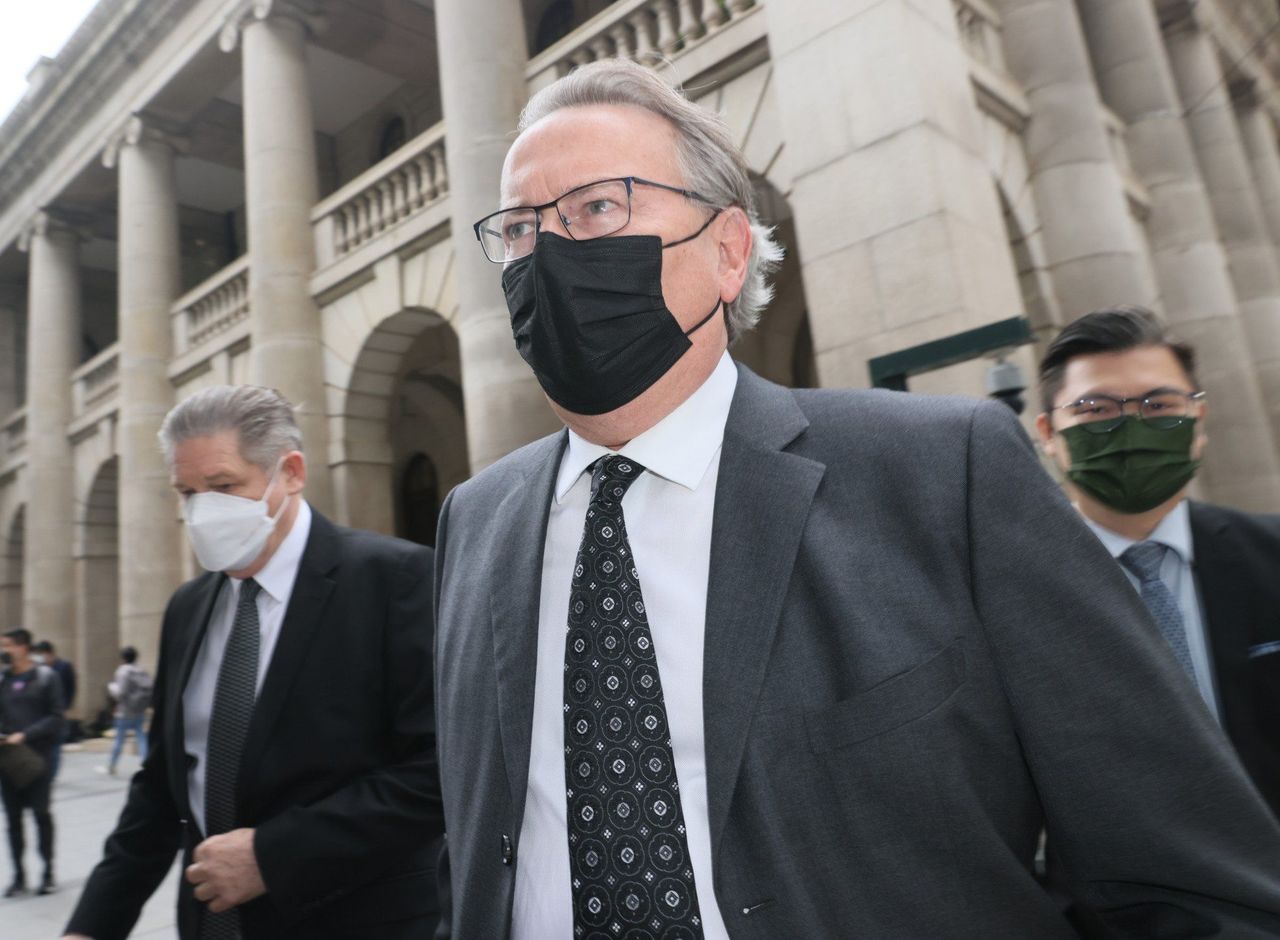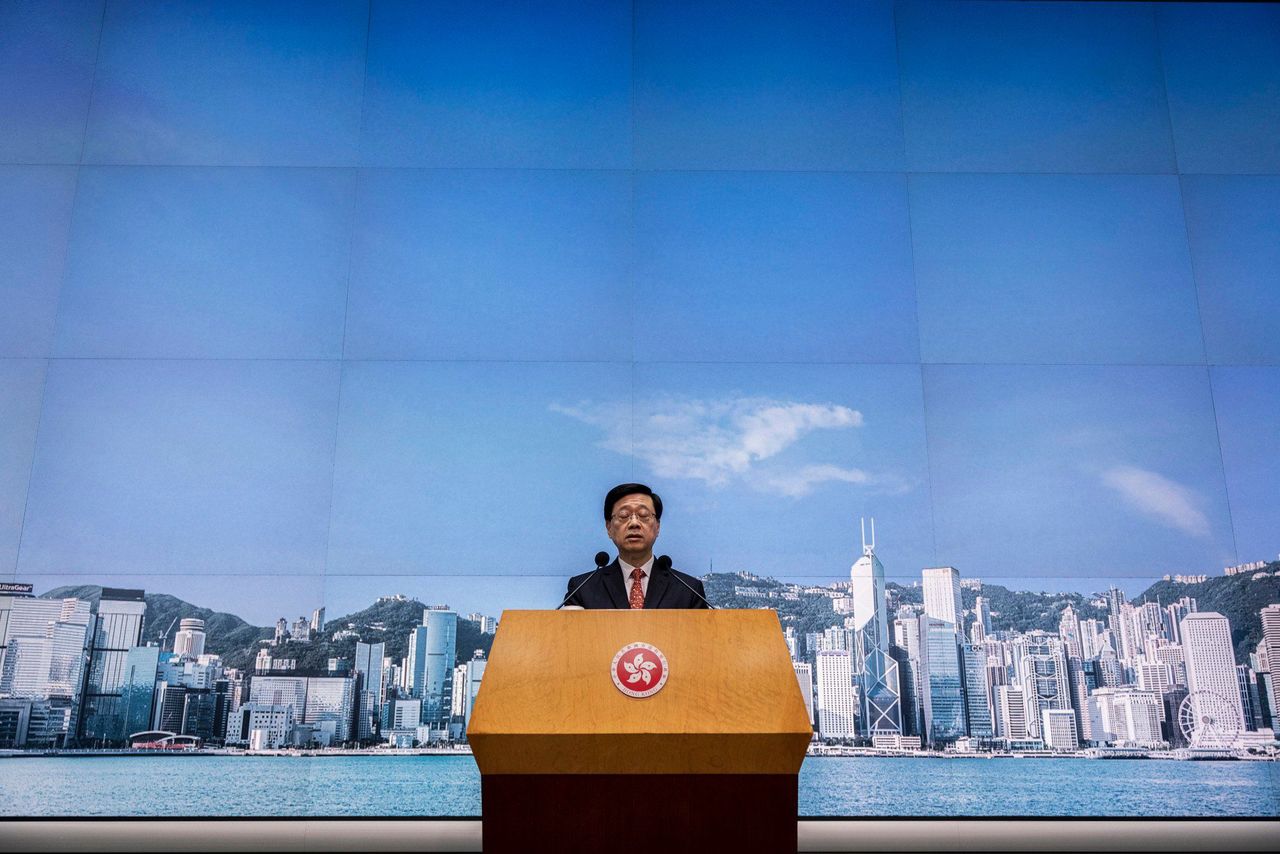Hong Kong News

Why new curb on overseas lawyers in national security cases is right
The government is proposing to amend the Legal Practitioners Ordinance by barring overseas lawyers who are not qualified to practise in Hong Kong from appearing as barristers in cases, unless the chief executive believes it would not involve national security or be contrary to the interests of national security. The legislative exercise is intended to be completed in the first half of the year.
This proposal is in the best interests of Hong Kong. Let me explain why.
In law, context is everything. For now, an overseas lawyer (invariably a King’s Counsel from Britain) who is not qualified to practise in Hong Kong may apply for ad hoc admission to appear as a barrister in a case. The court allows this only if it is satisfied that it would be in the public interest. Among other things, the court will consider whether the case is of unusual difficulty or complexity, and whether any suitable local counsel is available.
The number of such applications has fallen over the years, with fewer than 20 in each of the last four years. This is hardly surprising given there are now more than 1,600 barristers (including more than 100 senior counsel) and 13,000 solicitors in Hong Kong.
Very few common law jurisdictions still retain such an arrangement. Moreover, it is unheard of to allow overseas lawyers to participate in litigation concerning national security.
This ad hoc admission arrangement was enacted long before Hong Kong’s national security law. It is completely silent on the crucial issue of whether overseas lawyers should be permitted to participate in cases involving national security.
 The proposal came in the wake of a public debate over the application of
British King’s Counsel Timothy Owen (centre) to defend media tycoon
Jimmy Lai Chee-ying.
The proposal came in the wake of a public debate over the application of
British King’s Counsel Timothy Owen (centre) to defend media tycoon
Jimmy Lai Chee-ying.
The lacuna was highlighted last December by the interpretation by the Standing Committee of the National People’s Congress on Articles 14 and 47 of the national security law. Whether overseas lawyers not qualified to practise generally in Hong Kong may serve as defence counsel or legal representatives in cases concerning an offence endangering national security, it states, is a question that requires certification by Hong Kong’s chief executive.
Against this background, I wish to make four points.
First and foremost, the government’s proposal fulfils Hong Kong’s constitutional duty. The top priority of “one country, two systems” is to safeguard national sovereignty, security and development interests. The proposal aims to discharge Hong Kong’s duty to safeguard national security, and to ensure the thorough and precise implementation of one country, two systems.
Second, it preserves a unique advantage of Hong Kong’s common law system. To allow eminent and experienced overseas lawyers to appear ad hoc may help to enrich Hong Kong’s common law jurisprudence, and enhance Hong Kong’s status as an international legal and dispute resolution services centre.
The government is committed to maintaining this unique advantage. Hence, the proposed change would not apply to cases (whether civil or criminal) which do not involve national security.
Even for those involving national security, it does not seek to impose a complete and absolute ban. Instead, depending on the circumstances of each application, and provided the chief executive is satisfied that exceptional circumstances exist, an overseas lawyer may still be allowed.
Third, it delineates clearly the roles of the executive and judiciary in this respect. On the one hand, the power to determine whether a particular case involves national security and whether exceptional circumstances exist to admit an overseas lawyer on an ad hoc basis, even in cases involving national security, is given to the chief executive.
Such arrangement is required by Article 47 of the national security law, which provides that the court shall obtain a certificate from the chief executive to certify whether an act involves national security when such a question arises in the adjudication of a case.
It is also consistent with the common law principle that, as common sense dictates, national security is a matter in which the executive authority (rather than the court), who shoulders the responsibility, must have the last word; and such a matter should not be made the subject of evidence in court or discussed openly in public.
On the other hand, for cases not involving national security, as well as those involving national security but which the chief executive is satisfied that exceptional circumstances exist, whether the ad hoc admission application should be allowed on the grounds of public interest is still, ultimately, a matter for the court to decide.
 Hong Kong Chief Executive John Lee speaks during a news conference in
Hong Kong on March 21. The government’s proposed amendment to the Legal
Practitioners Ordinance delineates clearly the roles of the executive
and judiciary in determining whether foreign lawyers should be involved
in national security cases.
Hong Kong Chief Executive John Lee speaks during a news conference in
Hong Kong on March 21. The government’s proposed amendment to the Legal
Practitioners Ordinance delineates clearly the roles of the executive
and judiciary in determining whether foreign lawyers should be involved
in national security cases.
Fourth, the proposed change adheres to the principle of the rule of law, and respects the human rights guaranteed by the Basic Law. It will have no retrospective effect as it would only apply to new ad hoc admission applications. It does not concern any application already made (or determined by the court). It does not impair the right to choose lawyers.
Such a right is not an absolute. It only includes a right to choose lawyers who are available and qualified to practise in Hong Kong, but not overseas lawyers not qualified to practise here. The proposed change retains the chance to instruct overseas lawyers on condition that the chief executive determines there is no national security risk and the court sees it fit for the sake of public interest. Such a chance is a privilege not enjoyed by people in most, if not all, familiar and comparable common law jurisdictions.
All in all, the government’s proposal serves to strike a proper balance among various considerations. Subject to the need to address national security concerns falling within the constitutional duty of the executive authority, it will preserve the unique advantage of Hong Kong’s common law system relating to the ad hoc admission arrangement, and in a way that respects the court’s power of adjudication, the rule of law and human rights.











